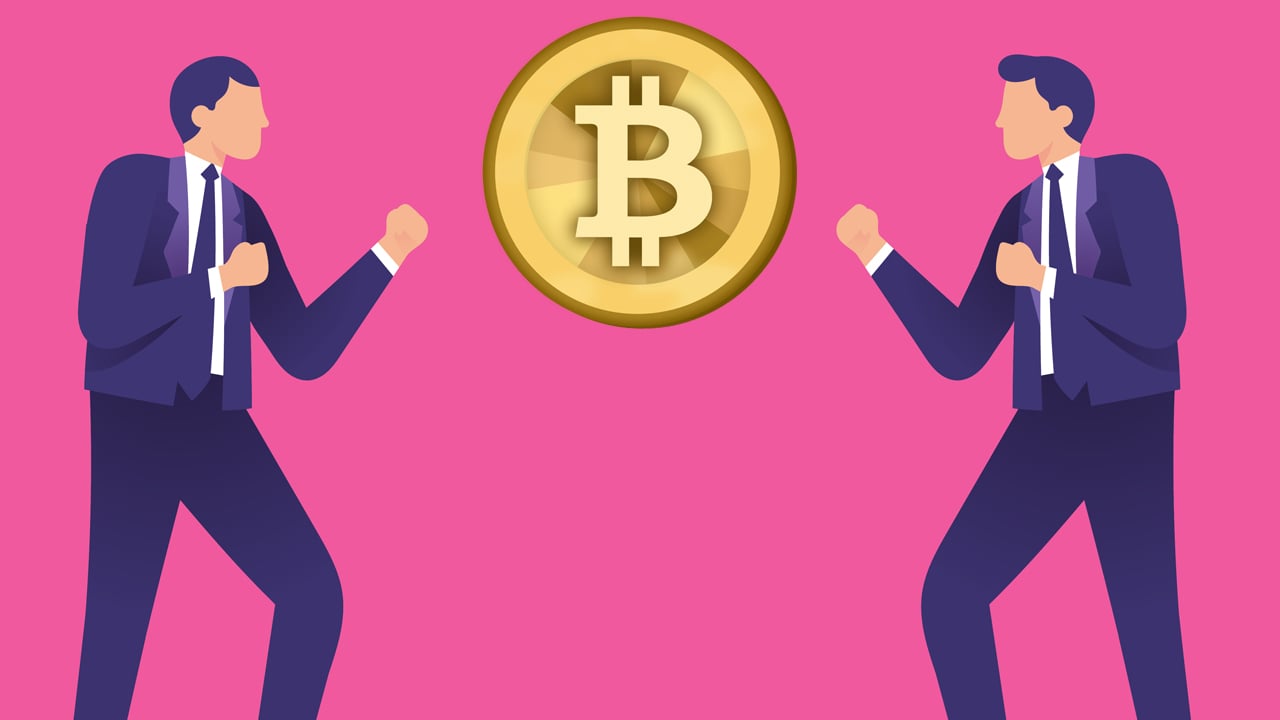This week, the Bitcoin community has been abuzz with discussions about the network’s scaling challenges. As the blockchain’s transfer fees continue to surge, the backlog of transactions stuck in the mempool has hit an unprecedented high. Crypto enthusiasts have been sharing their diverse perspectives on the matter, leading to a flurry of takes across various social media platforms.
Bitcoin’s Scaling Challenges Spark Controversy and Diverse Perspectives
The recent surge in Ordinals and BRC20 token usage has led to a significant increase in onchain activity, causing the mempool to overflow with over 400,000 transactions. Currently, a whopping 194 blocks need to be mined to clear the backlog, which would take more than 24 hours at an average of ten minutes per block. As a result, people have been sharing a wide range of opinions on the matter, with some reveling in the higher fees and increased onchain activity, while others suspect that the blockchain is under attack. Meanwhile, some believe that the so-called attacker’s scheme is unsustainable and will eventually fizzle out.
“[The] mempool is spammed with dust payments (546sat) to drive fees high and block normal transactions,” one person speculated. “What if a state is behind this? Or Satoshi itself?” the individual asked. Some people shared the opinion that high fees are meant to prevent spammers. “High onchain fees is the network protecting itself – assuring it is expensive to spam / attack,” another individual tweeted. “From this point of view, the high fees are a VERY good thing. The mempool is a living, breathing, dynamic entity. Fees will eventually go down again when spammer funds are exhausted.”
The recent surge in network fees has left many in the Bitcoin community feeling frustrated. Bitcoin educator Anita Posch took to social media to express her concerns about the impact of these fees on onboarding new users. “Can anyone explain how I’m going to onboard people with these fees?” Posch asked. “Can’t use onchain, can’t open channels. Makes custodial Lightning the only option. And all that because some people think it’s fun to ‘break Bitcoin.’ Why not use Liquid or RSK?” Posch insists that people minting on the Bitcoin blockchain are “privileged.” “The people minting are privileged users,” Posch added. “The ones who really need bitcoin as a lifeboat can’t afford these fees.”
However, not everyone agrees with Posch’s perspective. Bitcoin Stamps founder Mike in Space said it was a “Terrible take.” “No one is looking to ‘break bitcoin’ we’re just USING it and paying for the privilege to do so,” he wrote. “This is what adoption will, inevitably, looks like: HIGH FEES. This is the system working as designed.” People have also been criticizing the Lightning Network (LN) as the dynamic fees have made it difficult to open channels. “The problems that are occurring with LN were known from the start,” Eric Voskuil tweeted. Voskuil added:
I remember this discussion from Scaling Hong Kong. People have been led to believe that chain fees don’t really affect LN and LN doesn’t really push chain fees.
Talks of Censorship Find Their Way Into the Debate
The recent Ordinal trend has sparked controversy in the Bitcoin community, with some individuals taking issue with Udi Wertheimer, one of the trend’s originators. In fact, one Twitter user, Btcbello, went so far as to call for Wertheimer to be barred from the upcoming Bitcoin 2023 conference in Miami. “Dear [Bitcoin Magazine], [David F Bailey], you should cancel/bar Udi Wertheimer from taking part at [The Bitcoin Conference] immediately,” the Twitter account Btcbello wrote. “He thinks he’s more important to Bitcoin than Satoshi Nakamoto, lol.” Further Btcbello asked people to retweet if they agree and 113 people re-tweeted the post.
Meanwhile, Bitcoin developers have been discussing the network’s scaling issues, with some proposing the idea of censorship at the node level. “An alternative would be to enforce this ‘censorship’ at the node level and introduce a run-time option to instantly prune all non-standard Taproot transactions. This will be easier to implement, but won’t hit the road until minimum next release,” one programmer wrote. Many people simply do not care about the heated arguments as they insist that people have been warning about these issues for years.
“Cracking up. Bitcoin mempool finally gets some usage and the maxis are framing it as a DoS attack on the network,” the Twitter user Foobar said. “They really have not considered even the most basic scenarios, like ‘bitcoin becomes popular and people are willing to pay to use it.’” Samourai Wallet developer Tdevd tweeted: “LN was priced out? Someone tell The #Kliq. New Jersey burb Dads not paying their landscapers via LN often enough? (“It’s working now.” LOL!) Waiting for pants wearing wifey to bring home the fiat? The Kliq are out of touch… Talk the talk without walking the walk. Street stuff.”
So far, there is no clear solution in sight. The developer who wrote about the possibility of censorship at the node level posed the question of whether action should be taken if the volume does not decrease in the coming weeks. Despite the uncertainty, many people believe that the issues will eventually subside. “It is likely the madness over Ordinals will subside,” one person stated. “Everyone should take a deep breath, Bitcoin will be fine. It will either subside, or we will adapt + grow + build solutions,” another individual said.
Tags in this story
Backlog, Bitcoin, controversy, Cryptocurrency, high fees, lightning network, Mempool, Onchain Activity, scaling challenges, Social Media, transactions, Transfer Fees
What are your thoughts on the ongoing Bitcoin scaling challenges and the heated debates surrounding them? Share your perspective and join the conversation below.
![]()
Jamie Redman
Image Credits: Shutterstock, Pixabay, Wiki Commons
Disclaimer: This article is for informational purposes only. It is not a direct offer or solicitation of an offer to buy or sell, or a recommendation or endorsement of any products, services, or companies. Bitcoin.com does not provide investment, tax, legal, or accounting advice. Neither the company nor the author is responsible, directly or indirectly, for any damage or loss caused or alleged to be caused by or in connection with the use of or reliance on any content, goods or services mentioned in this article.



